Photo AI
Last Updated Sep 26, 2025
Principles of Organisation Simplified Revision Notes for GCSE AQA Biology
Revision notes with simplified explanations to understand Principles of Organisation quickly and effectively.
321+ students studying
2.1.1 Principles of Organisation
Cells are the basic building blocks of all living organisms. They are the smallest units of life, carrying out essential functions that sustain the organism.
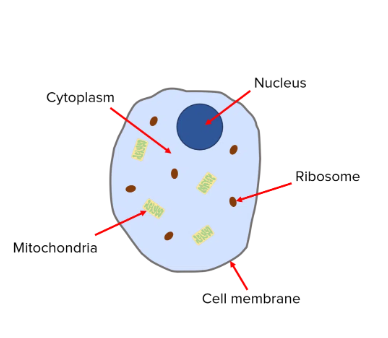
Animal Cell
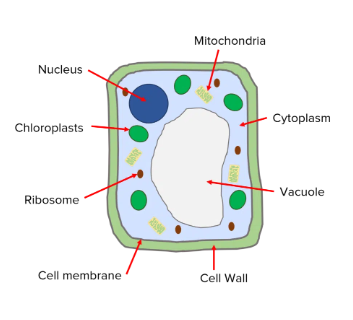
Plant Cell
- Tissues are groups of specialised cells that have a similar structure and work together to perform a specific function. Tissues can consist of one or more types of cells. For example:
- Muscular tissue: Composed of muscle cells, it is responsible for movement.
- Epithelial tissue: Made up of epithelial cells, it covers and protects surfaces both inside and outside the body, such as the lining of the stomach or the skin.
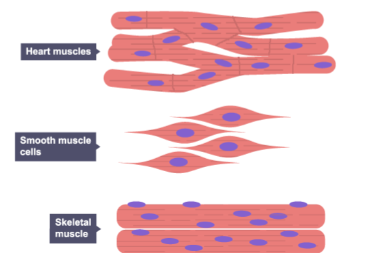
Muscular tissue
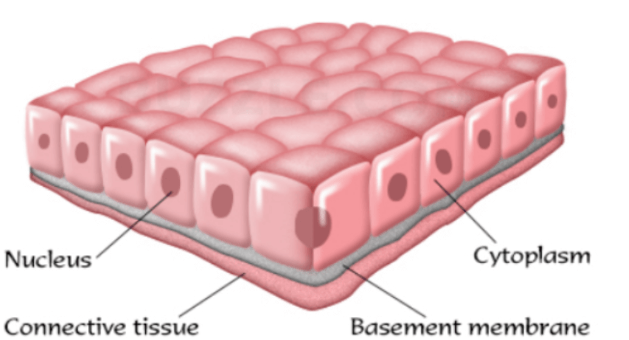
Epithelial tissue
- Organs are structures made up of different types of tissues working together to carry out a particular function. Each tissue within an organ contributes to the organ's overall role. For instance:
- The stomach is an organ that plays a critical role in digestion. It contains:
- Muscular tissue: Helps churn and mix food.
- Epithelial tissue: Protects the stomach lining and secretes digestive enzymes.
- Organ systems are groups of organs that work together to perform complex functions necessary for the body's survival. Each organ within the system has a specific role that contributes to the system's overall function. For example:
- The digestive system includes the stomach, liver, small intestine, and other organs that work together to break down food, absorb nutrients, and eliminate waste.
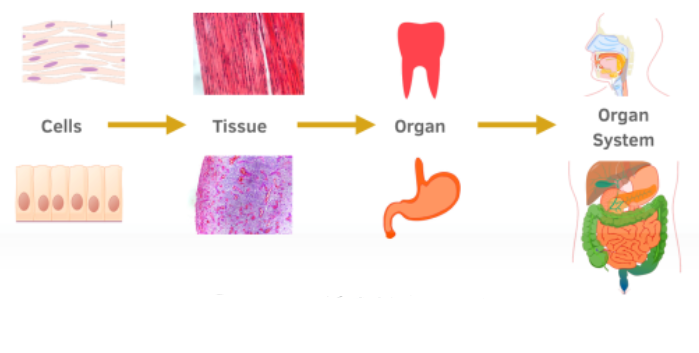
- The digestive system includes the stomach, liver, small intestine, and other organs that work together to break down food, absorb nutrients, and eliminate waste.
These levels of organisation—from cells to tissues, organs, and organ systems—form the complex structures that allow living organisms to function efficiently and effectively.
500K+ Students Use These Powerful Tools to Master Principles of Organisation For their GCSE Exams.
Enhance your understanding with flashcards, quizzes, and exams—designed to help you grasp key concepts, reinforce learning, and master any topic with confidence!
80 flashcards
Flashcards on Principles of Organisation
Revise key concepts with interactive flashcards.
Try Biology Flashcards8 quizzes
Quizzes on Principles of Organisation
Test your knowledge with fun and engaging quizzes.
Try Biology Quizzes10 questions
Exam questions on Principles of Organisation
Boost your confidence with real exam questions.
Try Biology Questions129 exams created
Exam Builder on Principles of Organisation
Create custom exams across topics for better practice!
Try Biology exam builder21 papers
Past Papers on Principles of Organisation
Practice past papers to reinforce exam experience.
Try Biology Past PapersOther Revision Notes related to Principles of Organisation you should explore
Discover More Revision Notes Related to Principles of Organisation to Deepen Your Understanding and Improve Your Mastery
